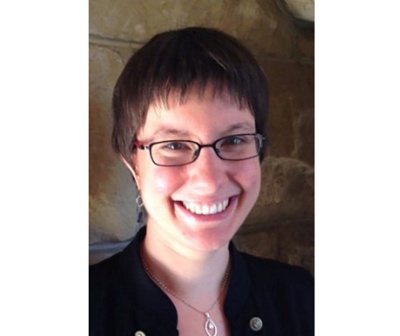Adelaide Calbry-Muzyka
Research topics and role within SCCER
Dr. Adelaide Calbry-Muzyka is a post-doctoral researcher in the Thermal Process Engineering group at the Paul Scherrer Institute. She is contributing to several projects within the SCCER BIOSWEET. Her work focuses on the use of biomass for the generation of grid-quality biomethane and electricity. In particular, she looks at developing and validating specialized gas cleaning processes for new process chains developed in the SCCER BIOSWEET. She has also worked on assessments of the total potentials and costs for electricity generation from domestic biomass resources in Switzerland.
Biography, carrier path
Adelaide gained her undergraduate degree in mechanical engineering at the Massachusetts Institute of Technology before obtaining her PhD from Stanford University. Her international outlook, thanks to growing up in multiple countries, led Adelaide into the field of renewable energy. By her own admission, she was more generally into maths and physics growing up, and those ultimately led her into her current career field.
What do you find fascinating about the energy transition
"What I find fascinating about the energy transition is it requires people to work together across countries, cultures and research fields", she said. "The energy transition will not depend on a single ‘miracle’ technology, but on a portfolio of new technologies, and that portfolio will look different in different places. People have to think innovatively in a way that respects each others' research fields and considers local conditions."
Due to energy being a global problem, she believes it takes a variety of people to solve it. Having been educated in the US and now working in Switzerland, she has enjoyed developing a perspective for how the two countries’ energy systems are different, even while the problems faced are global.
And the SCCER program?
Collaboration is a prerequisite for the energy transition, be it at the national or global scale. The SCCER BIOSWEET - but equally all other SCCERs - enables the Swiss research community to generate collective knowledge that is necessary to tackle the before mentioned complexity. These programs invite researchers to leave their comfort zones, which is definitely a good thing I am fully supportive of. Yet, I also believe that inter- and transdisciplinary research requires more time than currently granted by the funders. In the same vein, knowledge and technology transfer is a long process. Everybody is talking about harvesting ‘low hanging fruits’ these days. I hope that the funding institutions have patience also to wait for high-value fruits on the top of the tree that require more maturing time.
Recommendations for young women wishing to pursue a career in the energy field?
"Society still pre-conditions boys to be in technical fields, so my advice to girls is get involved in what you are interested in, and go and learn about it," she stated. "Don't drop out of the subjects you enjoy. You don't have to be successful all the time. Learn from success and failures."
Adelaide will continue "trying to figure out how things work" as she furthers her career with the SCCER BIOSWEET and contributes to the Swiss energy transition.
Your „work-balance“ recipe?
Outside of the SCCER BIOSWEET department, Adelaide furthers her love of all things science. The dual Canadian and French passport holder works with children in science outreach programs, attempting to teach what she has learned over the years. In the past, she worked with programs on robotics and hopes to continue to interest kids in science in Switzerland. She also enjoys cooking and enjoys making dishes from the variety of countries she has lived in.
Interview: Simone Nanzer (SCCER BIOSWEET), July 2017
!!! This document is stored in the ETH Web archive and is no longer maintained !!!
